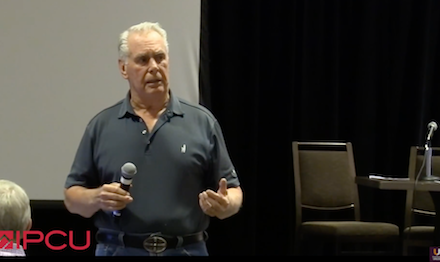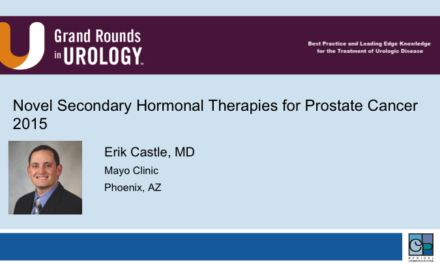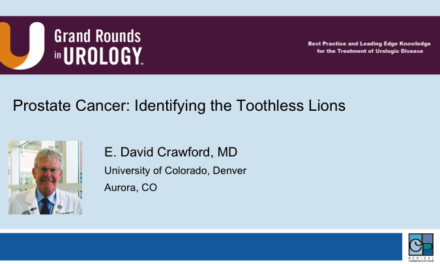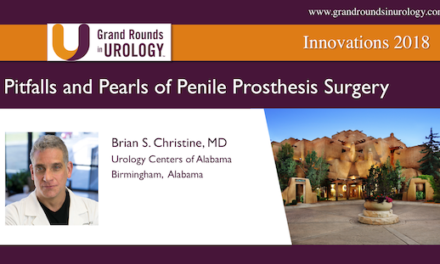Leonard G. Gomella, MD, FACS, presented “How Academic Urology Institutions are Coping with the COVID-19 Pandemic” for the Grand Rounds in Urology audience in March, 2020.
How to cite: Gomella, Leonard G. “How Academic Urology Institutions are Coping with the COVID-19 Pandemic” March, 2020. Accessed Dec 2024. https://dev.grandroundsinurology.com/how-academic-urology-institutions-are-coping-with-the-covid-19-pandemic/
How Academic Urology Institutions are Coping with the COVID-19 Pandemic – Summary:
Leonard G. Gomella, MD, FACS, the Bernard W. Godwin, Jr., Professor of Prostate Cancer and Chairman of the Department of Urology at the Sidney Kimmel Medical College at Thomas Jefferson University, discusses how academic urologic institutions are coping with the COVID-19 crisis. He highlights how the pandemic has created an asymmetric practice model as cases go before an OR committee to determine which can be postponed and which need to go forward. This asymmetric model may affect relative value units (RVUs) as the year goes on, but Dr. Gomella emphasizes the need to care for patients in this time of crisis over worrying about the details of reimbursement. He further discusses the need to transition to telehealth but also recognizes that this is not a practical solution for some older patients who are not confident in their use of technology. Phone visits have proven to be an effective solution in these cases, as cross-state licensing rules have been temporarily abolished. Dr. Gomella also speculates on the potential need to suspend all truly non-life threatening surgeries and its impact on patients.
For other urology-focused information on the COVID-19 pandemic, visit our resource page.
ABOUT THE AUTHOR
Leonard Gomella, MD, FACS, is the Bernard W. Godwin, Jr., Professor of Prostate Cancer and Chairman of the Department of Urology at the Sidney Kimmel Medical College of Thomas Jefferson University. He joined the Jefferson faculty in 1988 and was appointed Chair in 2002. He serves as Senior Director for Clinical Affairs for the NCI-designated Sidney Kimmel Cancer Center, Clinical Director of the SKCC Network, and Urology Chair for NRG (RTOG). Dr. Gomella is involved in translational basic science and clinical research in the development of new diagnostic techniques and treatments for prostate and bladder cancer through the Sidney Kimmel Cancer Center as Co-Leader of the Biology of Prostate Cancer Program. In 1992, he led the team that first used molecular techniques to detect circulating tumor cells in prostate cancer. He has given over 500 presentations, written over 400 papers, and edited dozens of chapters and monographs in the field of urology. Dr. Gomella has authored and edited many editions of a number of books for medical students, residents, and practicing physicians, including the “Clinician’s Pocket Reference” (aka “The Scut Monkey Book”) and “Five Minute Urology Consult.” He is also Editor-in-Chief of the Canadian Journal of Urology. “Recovering from Prostate Cancer,” which Dr. Gomella wrote in 1993, was the first book released for the general public specifically on the topic of prostate cancer.
“Best Doctors in America,” “Top Doctors for Cancer,” and Philadelphia Magazine’s “Top Doctors” have recognized him for many years for his contributions to urologic oncology and prostate cancer care. He also received national recognition in Newsweek in 2015. In 2007, Men’s Health listed Dr. Gomella as one of the 20 top urologists in the US. He has received numerous awards, including the American Cancer Society’s “Volunteer Achievement Award” and an “NCI Achievement Award.” He has been President of the Mid-Atlantic Section of the AUA and has been elected to the American Association of Genitourinary Surgeons and the prestigious Clinical Society of Genitourinary Surgeons. The University of Kentucky College of Medicine awarded him a “Distinguished Alumnus Award” in 2009. From 2015-2017, he was President of the Society of Urologic Oncology. In 2015, he received a “Distinguished Contribution Award” from the AUA and Jefferson honored him with the “Jefferson Achievement Award in Medicine.”





